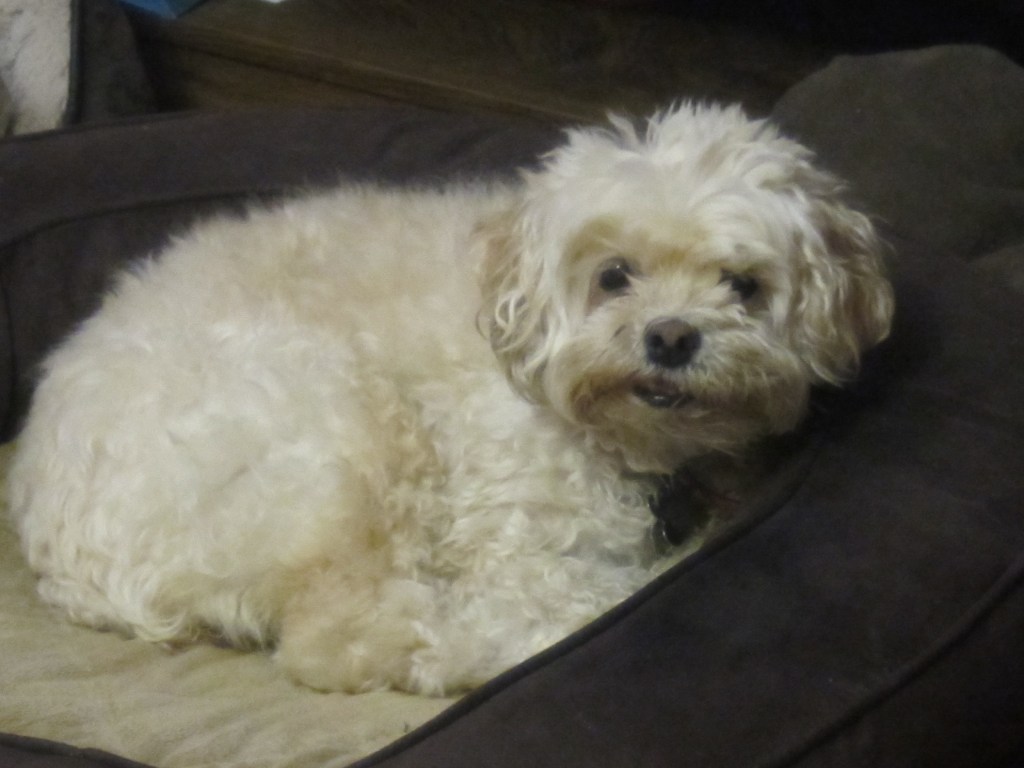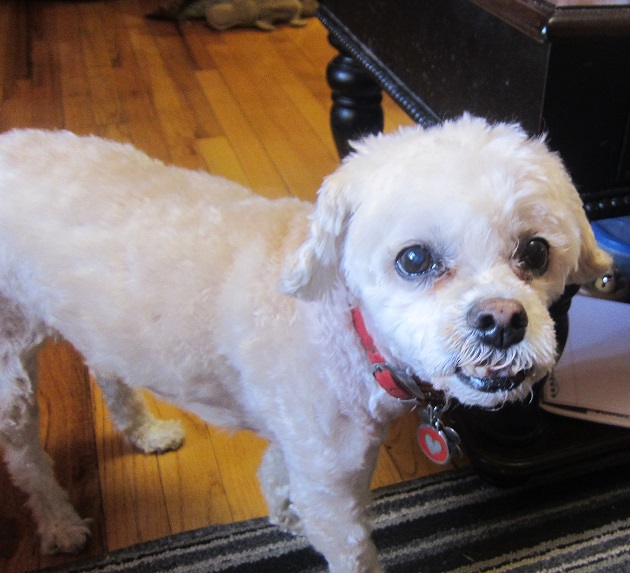The hardest lesson for me in my Intuitive Eating journey has been: Respect Your Body. I’ve been dreading this chapter in the workbook (by Evelyn Tribole and Elyse Resch) since I started working with my nutritionist seven months ago. But as we ran out of other chapters to read, and re-read, she suggested going through this chapter one page at a time – in small bites – to keep it from becoming too overwhelming.
One of the basic steps of learning to respect your body is the acceptance of your “genetic blue print,” because we have these fantasies that a five-foot-tall woman can transform herself into a willowy, long-legged model, if she just tries hard enough. In the Respect Your Body chapter of the book the authors write that, “Just as a person with a shoe size of eight wouldn’t expect to realistically squeeze into a size six, it is equally futile (and uncomfortable) to have the same expectation about body size.”
But I do have these expectations. Literally, I’ve often felt guilty for how big my feet are, as if I kept growing on purpose just to take up more than my fair share of space. I don’t know how to accept that it’s okay to have big feet and big bones in a world where, up until recently, I couldn’t find many shoes in my size. But an even bigger part of the problem, I think, comes from the extreme size difference between my parents: my father is 6’4” and my Mom is, maybe, 5’1”, so being big automatically makes me feel like I’m on the wrong side of the parental divide. My father is a bad guy, and I feel bad by association for being tall and big-boned like him, instead of petite like Mom.
I remember going to look for a watch when I was a teenager and trying on one women’s watch after another until it became clear that the bands on the watches meant for women were universally too small for me. And this was when I was skinny! I had to choose from the men’s watches even though they all looked so masculine and made me feel like I had cooties.
I have a lot of stories like that: like when I was ten and needed new sneakers and none of the girls’ sneakers came wide enough for me, so I had to buy the ones for boys (aka blue). I wasn’t overweight, just built on the wrong scale for a girl my age, so there were no pink sneakers for me.
I remember an episode of the Oprah Winfrey Show, years ago, when Oprah compared her “food addiction” to men who were “addicted” to domestic violence. She sat down with a group of domestic abusers and likened their inability to stop beating their wives with her inability to stop eating pasta. She really seemed to believe that this was a fair comparison. The underlying assumption, that wanting to eat a regular-sized serving of pasta qualifies as an addiction, went unquestioned, of course, but Oprah’s analogy pushed it further, implying that being fat is a character issue similar to beating your wife.
I don’t know if there was any pushback against her assertions, because this was pre-social media, but her message resonated with a lot of other things I’d heard and seen by then. It was clear that, in our culture, dieting is considered virtuous, and choosing to eat just because you are hungry is a character flaw. But I am tired of dieting, and it has been a relief to give myself permission to eat over the past six months, and yet I haven’t been able to give myself permission to stop beating myself up for eating.
There’s a theory that we hold onto these dehumanizing and degrading ways of talking to ourselves because they serve a purpose; because we get something from these behaviors that we don’t want to give up. But I don’t think that’s true. I think certain types of thinking, especially abusive ones that start early and pervade society, stick to us for neurological reasons, not because we choose to keep them. And blaming me for “holding onto” these negative thoughts is just one more way of blaming the victim, and it sucks.
It’s hard to change thoughts that are so well supported by the people around me, like my doctors. They keep saying things like: if you’d just eat less you’d lose weight; or, your health depends on losing thirty pounds; or, exercise will make you stronger and therefore your perception that you are exhausted and in pain after exercising is false.
How can I change internal messages that are constantly being reinforced by outside people who I am supposed to trust?
I want these thoughts to change, but I wish someone could tell me how much more work I should put towards the goal of changing my thoughts, before it’s time to work instead on accepting that I will always have these thoughts and finding a way to give them less power over me.
As I was reading the Respect Your Body chapter one page at a time, I came across a fact that stunned me: “The majority of American women (67%) wear sizes 16 and up, yet the majority of clothes available for purchase only go up to size 14.”
I have always assumed that I was a mutant for wearing a size sixteen as a teenager. And I felt that way when I wore a size fourteen, and a size twelve too. The only time I felt sort of normal was when I was a size eight (and anorexic). But what kind of society makes the majority of women feel like mutants? And how does the fashion industry even survive by aiming its merchandise at such a small percentage of the overall marketplace? Is the prejudice against larger-sized women so deep that clothing designers are willing to forego profits in order to continue stigmatizing women overall? All my life, I’ve thought that my sizes (of clothing, of shoes, of watches) were rare, and that’s why I could only find them in catalogs or online or in separate stores altogether, where the skinny people wouldn’t have to be contaminated. And now I find out that I’m actually in the majority?!!
No wonder the Intuitive Eating book needs a whole chapter on respecting your body. It’s a shock that any woman over a size two feels acceptable as she is. And really, maybe no woman feels acceptable, because if you are led to believe that something you have no control over (your height and body type) determines your worth as a human being, why would any woman feel good about that?
There’s so much work left for me to do on this issue, and the Intuitive Eating book doesn’t even address the body shame resulting from childhood sexual abuse. Even if I can work through the many layers of abusive messaging that come from societal expectations, or childhood bullying, or comparing myself to peers or to people on TV, underlying everything there is the fact that my body was not a safe place for me growing up.
I want all of this to be easier. I want my doctors to stop being part of the problem, and I want the media to be more realistic about what can be expected of the human body, and I want Anorexia and disordered eating to stop being accepted as the cost of being a woman in our society. I want help, basically, because I don’t think I can do this work successfully without a lot of other people changing their minds with me.
And yet, I still desperately want lose thirty pounds, even though I know from experience that I will be just as unhappy with a thinner body, because I’ve been skinny and it didn’t fix anything. But I can’t let go of the hope.
If you haven’t had a chance yet, please check out my Young Adult novel, Yeshiva Girl, on Amazon. And if you feel called to write a review of the book, on Amazon, or anywhere else, I’d be honored.
Yeshiva Girl is about a Jewish teenager on Long Island, named Isabel, though her father calls her Jezebel. Her father has been accused of inappropriate sexual behavior with one of his students, which he denies, but Izzy implicitly believes it’s true. As a result of his problems, her father sends her to a co-ed Orthodox yeshiva for tenth grade, out of the blue, and Izzy and her mother can’t figure out how to prevent it. At Yeshiva, though, Izzy finds that religious people are much more complicated than she had expected. Some, like her father, may use religion as a place to hide, but others search for and find comfort, and community, and even enlightenment. The question is, what will Izzy find?








